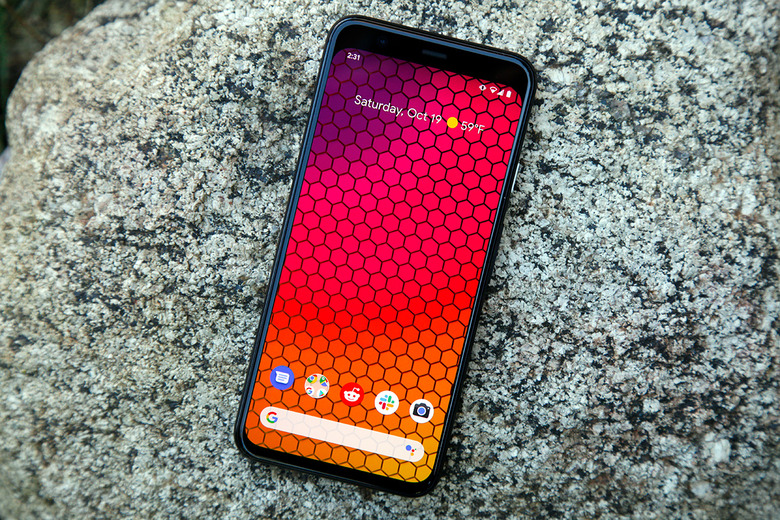Google Said To Be Readying A Custom Chip For Pixels And Chromebooks
- The Pixel 5 is rumored to have a mid-range Qualcomm Snapdragon processor rather than the chip that powers the Galaxy S20.
- Google is reportedly looking into a radical silicon change for next year's Pixel 6.
- Following in Apple's footsteps, Google will create its own mobile chips in partnership with Samsung.
- Visit BGR's homepage for more stories.
Ever since Google pivoted from the Nexus to the Pixel, it felt like Google has been one step behind Apple. The Pixels were inspired by the iPhone and closely followed Apple's design and feature sets. The first Pixel looked too much like an iPhone 6. Google then copied everything else that Apple did.
It killed the headphone jack a year after Apple did, and introduced 3D face recognition support two years after Apple. Wireless charging came to the Pixel 3 a year after Apple finally embraced wireless charging (though a few older Nexus phones did support wireless charging). As for the all-screen smartphone design, Google followed Apple as well, and that's when it changed the Android navigation menu, which now looks a lot like the iPhone's. Google also took its time moving to dual-lens cameras on its phones several years after Apple, although the Pixel camera is one department where Google's phones shine. But even then, the Pixel 4's rear camera design looked just like the rumored iPhone 11 camera design. And that iPhone rumor turned out to be true.
Google is now said to be doing something totally different with the Pixel 5 than what you'd expect from the company, and it's certainly not something that Apple has ever done. The new phone is rumored to have a mid-range Qualcomm processor rather than the chip that powers most other flagships.
This brings us, however, to the most exciting Pixel rumor to date. Google is finally getting the only iPhone feature Google should have ever copied: A custom chip.
Apple decided years ago to craft its own processors for iPhone and iPad, and that's one of the best decisions it ever made. Apple's custom A-series processors have been leading the industry ever since, and the jump to 64-bit years ago is what really made them stand out. Apple was ahead of everyone with the silicon upgrade, and everyone else in the business followed. To date, no other mobile processor can match Apple's, and it's not unusual for older iPhones to be faster than Android devices with the newest Qualcomm, Exynos, or Kirin chip.
Google never went there. It never created a custom chip that could be optimized to deliver an even faster Android experience. And Pixel's performance was criticized as a result. Unlike other Android phones, Google never bumped up the memory of the Pixel either, so RAM has been an issue with virtually every model.
Things are about to change, and Axios has the scoop. Google is finally making its own processor, which could debut as soon as 2021 on the Pixel 6:
The chip, code-named Whitechapel, was designed in cooperation with Samsung, whose state-of-the-art 5-nanometer technology would be used to manufacture the chips, according to a source familiar with Google's effort. Samsung also manufactures Apple's iPhone chips, as well as its own Exynos processors.
Recent leaks have claimed that Samsung and Google might work together on Exynos chips for Pixel phones, and the new report from Axios seems to reinforce those leaks.
If there is an issue, at least based on the current landscape, it's Samsung's Exynos platform. Anecdotal evidence suggests that Exynos-based Galaxy S20 phones overheat and perform worse than Qualcomm versions. As for iPhone processors, Samsung hasn't manufactured A-series chips for the iPhone in several years. TSMC, the only supplier Apple uses, will mass-produce the iPhone 12's 5nm processor this year.
The Whitechapel will be an 8-core ARM processor featuring "hardware optimized for Google's machine-learning technology." A portion of the chip will also be dedicated to improving the capabilities of Google Assistant.
Google's decision to skip the Snapdragon 865 processor this year might be related to the chip's design and cost. The chip that powers the Galaxy S20 and the OnePlus 8 requires a separate modem for 4G/5G connectivity. It's also more expensive than the 765 version that the Pixel 5 is supposedly getting. That's just speculation, but if any of it is true, then Google would have another reason to sidestep Qualcomm and follow in Apple's footsteps.
The writing on the wall was always there. Google designs its own co-processor for Pixel phones to handle computational photography and makes its own neural core for its handsets. It was only a matter of time until the Pixel got its own custom processor.
Axios says that Google might use the same custom ARM chip in Chromebooks in the future as well.
